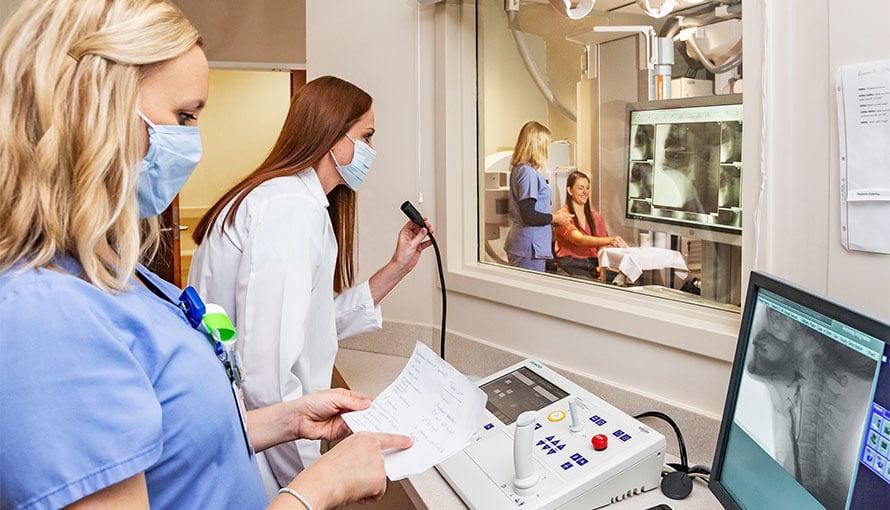The Value of a Speech Pathologist in Childhood Development
The Value of a Speech Pathologist in Childhood Development
Blog Article
Exactly How a Speech Pathologist Can Help Improve Communication Abilities
Effective interaction is a keystone of personal and specialist success, yet many individuals face challenges that hinder their ability to reveal themselves clearly. A speech pathologist is outfitted to address these barriers through targeted assessment and treatment methods tailored per person's needs. By using evidence-based healing methods, they not just function to enhance speech and language conditions but also enhance total communicative skills. Comprehending the complex duty of a speech pathologist reveals just how their know-how can transform lives, welcoming a better assessment of the certain approaches and outcomes connected with their method.
Understanding Communication Conditions
Recognizing interaction conditions is necessary for identifying how they affect people' capability to share themselves and involve with others. Communication problems include a variety of problems that impact speech, language, and social interaction, commonly preventing efficient communication. These disorders can emerge from numerous factors, consisting of neurological problems, developing delays, physical problems, or mental issues.
Speech disorders might show up as difficulties in articulation, voice, or fluency manufacturing, affecting exactly how words are pronounced or talked. Language conditions, on the other hand, involve difficulties in understanding or using language, which can hamper both spoken and non-verbal interaction. Social communication problems are defined by troubles in the practical elements of interaction, such as taking turns in discussion or understanding social cues.
The repercussions of interaction conditions are profound, influencing not just the individual's ability to convey thoughts and emotions yet additionally their social connections, instructional chances, and general lifestyle. Understanding of these disorders can cultivate compassion and assistance, urging effective techniques for communication and interaction. Understanding the complexities of communication disorders is a vital step towards promoting inclusivity and addressing the requirements of those affected.
Role of a Speech Pathologist
Speech pathologists frequently play an important role in identifying and treating interaction conditions, employing a series of evidence-based strategies customized to each person's requirements. These professionals function with individuals across the life-span, from youngsters with speech delays to grownups recuperating from strokes or distressing mind injuries. Their knowledge encompasses a range of communication concerns, consisting of articulation, voice, fluency, and language problems.
In therapeutic setups, speech pathologists utilize structured treatments created to enhance interaction skills. They might carry out methods such as speech exercises, language games, and social communication training to facilitate improvements in expressive and receptive language abilities. Speech Pathologist. Furthermore, they inform clients and their families concerning reliable communication strategies and adaptive approaches to navigate day-to-day communications
Beyond direct therapy, speech pathologists work together with other health care caregivers, educators, and professionals to ensure a thorough technique to treatment. They advocate for clients by supplying resources and support, enabling people to accomplish their communication objectives and enhance their total top quality of life. As professionals in the area, speech pathologists are crucial in fostering reliable interaction, promoting freedom, and enhancing social engagement for those with interaction challenges.
Assessment and Diagnosis Process
The analysis and medical diagnosis procedure performed by speech pathologists usually includes a comprehensive analysis to determine communication disorders accurately. This process starts with discover here a thorough medical history, where the clinician collects essential details regarding the individual's clinical, academic, and developing background. Recognizing the context of the person's communication difficulties is important for a precise medical diagnosis.
Following the case history, speech pathologists use standardized tests and informal analyses to evaluate different elements of communication, consisting of speech noise manufacturing, language understanding, meaningful language, and social communication skills. These evaluations are customized to the individual's age and particular worries, supplying valuable information for analysis.
Observation is likewise an important component of the analysis procedure, as it enables the clinician to see firsthand how the specific connects in natural setups. Additionally, meetings with member of the family and instructors can provide insight right into the individual's interaction obstacles across various settings.
Once the evaluation is full, the speech pathologist manufactures the searchings for to establish a medical diagnosis and advise appropriate treatments. This complete assessment process ensures that people obtain targeted assistance customized to their one-of-a-kind communication needs, laying the structure for efficient restorative strategies.
Healing Techniques and Approaches
Countless therapeutic methods and methods are employed by speech pathologists to resolve a selection of communication problems effectively. One commonly used approach is expression treatment, which concentrates on remedying speech sounds via rep and aesthetic signs. This strategy is specifically beneficial for people with speech audio problems.
Another efficient strategy is language treatment, which improves both receptive and meaningful language skills. This may include interactive tasks that promote vocabulary growth, sentence structure understanding, and conversational abilities. In addition, speech pathologists often use social skills training to enhance pragmatic language capacities, allowing people to browse social communications much more effectively.
Fluency shaping and stuttering alteration techniques are specifically designed to help those experiencing fluency disorders. These methods aid customers develop smoother speech patterns and handle the psychological and physical elements of stuttering.
Moreover, different and augmentative communication (AAC) systems are used for people with severe interaction disabilities. These systems, which can include motions, symbols, or electronic devices, provide essential support for reliable interaction.
Benefits of Speech Therapy

Additionally, speech treatment can assist in developing vital listening and comprehension skills, view website promoting far better interaction in discussions. People with cognitive-communication problems can additionally benefit, as treatment concentrates on reinforcing memory and problem-solving capacities, essential for effective communication.
Another essential facet is the emotional support offered during therapy sessions. Speech pathologists create a safe environment, motivating clients to conquer anxiety and disappointment related to their interaction problems. This support can bring about enhanced self-confidence and general psychological wellness.
Furthermore, very early treatment with speech treatment can prevent further problems, ensuring that people reach their full communicative potential. In general, the advantages of speech treatment expand past plain speech renovation, positively impacting various measurements of life for those affected by interaction problems.
Conclusion
In recap, speech pathologists play a vital duty in dealing with interaction problems with evaluation, medical diagnosis, and tailored therapeutic interventions. By employing evidence-based techniques, these experts enhance individuals' speech and language abilities, cultivating enhanced quality, fluency, and social communication skills. The benefits of early intervention highlight the relevance of seeking support from speech pathologists, as their knowledge can dramatically enhance communicative possibility, inevitably bring about better success in both specialist and individual balls.

Speech pathologists regularly play a vital duty in identifying and dealing with interaction problems, employing a variety of evidence-based techniques customized to each individual's requirements. As specialists in the field, speech pathologists are vital in promoting efficient interaction, advertising self-reliance, and enhancing social more information participation for those with interaction obstacles.

Report this page